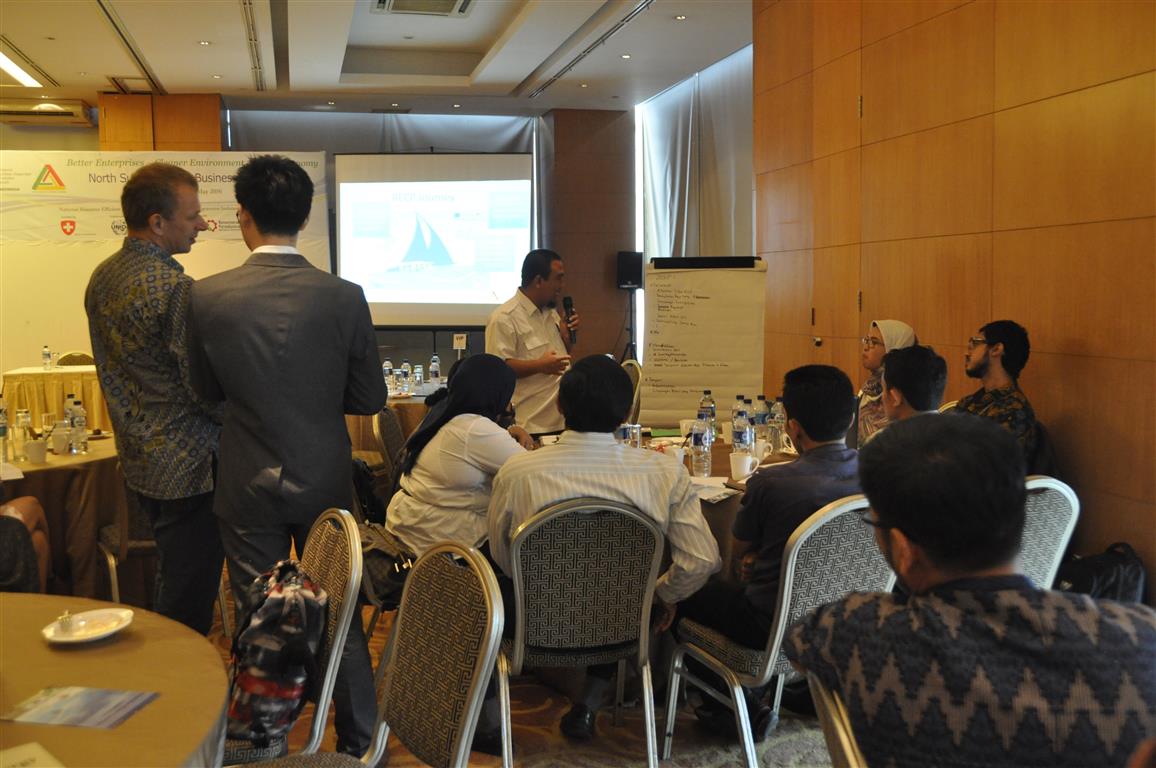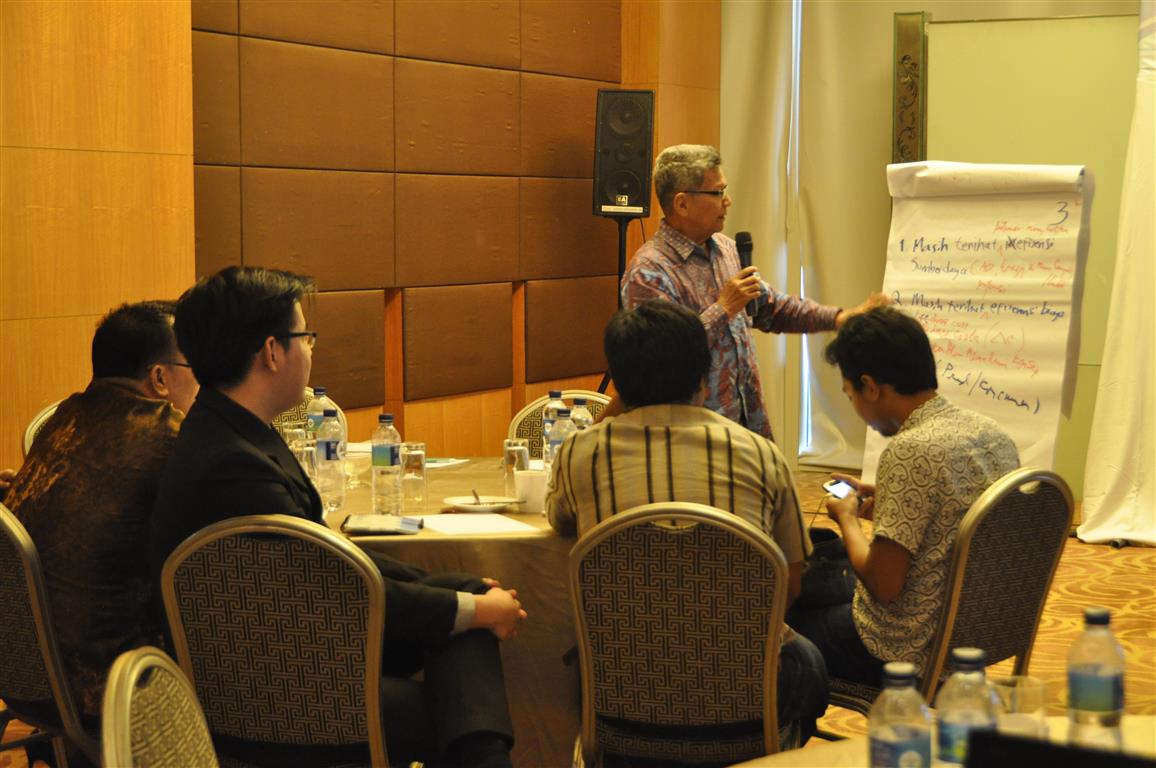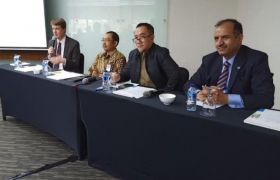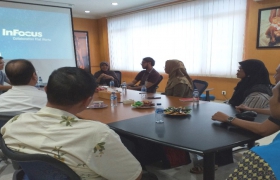In order to improve the profitability of industries and expand their markets through implementation of RECP in North Sumatra, UNIDO in collaboration with ICPC held the fourth series of regional business consultation 11 May 2016 in Medan.
The North Sumatra regional business consultation brought together around 45 participants from the lead representatives of business membership organizations, enterprises, regional industries, environment and planning agencies, environment and industrial experts, technical, academia, educational institutions, non-profit organizations and other stakeholders.
In the first session UNIDO’s RECP Chief Technical Advisor explained about RECP concept, implementation, best practices, and benefits for enterprises/industries in Indonesia. In the second session, participants were invited to cast their votes on RECP market place -- key actions under each of six RECP issues, using color dot stickers. participants had to choose which issues were already addressed by enterprises in North Sumatra and which issues were most important for improving profitability and sales of enterprises in North Sumatra. For actors of industries this activity can be some sort of self-assessment of their RECP practices.
In the third or last session, participants were identified that some pressures which encouraged enterprises to adopt RECP were among others Government’s regulation and products, shortage of water, shortage of industry market, business opportunity. Other pressures which encourage enterprises to adopt RECP were market and customers’ demands, social impact, excessive use of water and energy, as well as top management awareness on RECP practices and benefits. Participants continued the extensive discussion to identify barriers that prevents enterprises from adopting RECP, were among others limited investment capital, lack of RECP awareness and culture, lack of skill of HR and top management, cost, which is hard to debate, lack of knowledge, technology, human behavior, old habit, and also limited natural resources.
Next, in a free flowing discussion, participants identified challenges that enterprises need to overcome for RECP. Participants divided the challenges into two major parts, i.e. internal and external challenges. Internal challenges were among others top management commitment, setting up soft infrastructure, such as: providing incentive, access of information, work culture, etc. Participants strongly believed that innovation became one of challenges that enterprises also need to overcome for RECP. Top management need to cultivate new innovations from the employee and the company need to have a reward system, by doing so it would provoke another innovation, although they all aware that innovation means doing risk. Besides internal challenges, participants also identified external challenges faced by enterprises for RECP, such as: Government commitment, infrastructure readiness, such as roads, damaged roads lead to energy loss. Other things were the availability of laboratory testing, the samples must be sent to Jakarta, so the problem solving process becoming longer, and competitive business environment.
Participants requested UNIDO to be a bridge and assist Government on some issues, such as: Government’s commitment to the enterprises, waste management especially “limbah B3” or hazardous waste, Government’s permit on temporary waste storage, as well as standards issued by Governments to be applied in the enterprises.












